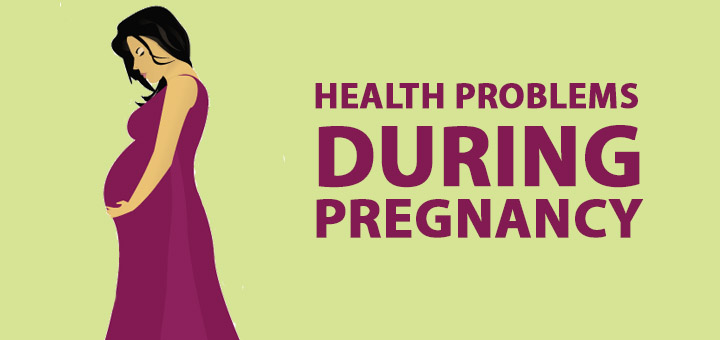Pregnancy is a beautiful journey towards motherhood in every woman’s life. This beautiful journey can encounter some common health problems during pregnancy. They can affect the mother’s health, the baby’s health, or both. However, there are ways to manage these pregnancy-related health problems. Regular prenatal visits can help your doctor identify potential health problems early and take steps to manage them, to protect the health of the mother and the growing baby. Being aware of the symptoms of these conditions and getting regular prenatal care can prevent health problems and help you to complete the beautiful journey.
The following are some of the common health problems that are experienced by pregnant women:
- Anemia: This condition refers to a drop in hemoglobin levels or red blood cells count. Most of the time, this is triggered by iron deficiency. The symptoms of anemia are feeling tired or weak, looking pale, feeling faint, and shortness of breath. Treating the underlying cause of the anemia will help increase the red blood cells count and hemoglobin levels. Women with pregnancy-related anemia are treated by giving iron and folic acid supplements. Your doctor will check your iron levels throughout pregnancy to make sure anemia does not appear again.
- Gestational diabetes: This condition is marked by high blood sugar levels during pregnancy. Usually, there are no symptoms, but sometimes, the symptoms like extreme thirst, hunger, or fatigue occur. A screening test shows high blood sugar levels. Most women with pregnancy-related diabetes can control their blood sugar levels by eating a healthy meal suggested by their doctor. Some women also need medicines and insulin to keep blood sugar levels under control. This is very important because poorly controlled diabetes increases the risk for other health complications.
- Depression: This condition is marked by extreme sadness during pregnancy or after birth. Intense sadness, helplessness, irritability, appetite changes, and thoughts of self-harm are some of the symptoms. There is no single cause of depression during and after pregnancy, but hormonal changes, stress, family history, and changes in brain chemistry or structure may all play a role. The mother’s depression can affect her baby’s development, so getting treatment is important for both mother and baby. This is a treatable condition. Women who are depressed during and after pregnancy can get help with medicines, therapy, or support groups.
- Preeclampsia: This is a condition that may start after 20 weeks of pregnancy and this can cause high blood pressure and problems with the kidneys and other organs. High blood pressure, swelling of hands and face, high protein in the urine, stomach pain, blurred vision, dizziness, and headaches are some of the symptoms of this condition. The only cure is delivery, which may not be best for the baby. If it is too early to deliver, the doctor will watch the health of the mother and her baby very closely. The doctor may prescribe medicines and bed rest at home or in the hospital to lower blood pressure. Medicines also might be used to prevent the mother from having seizures.
- High blood pressure related to pregnancy: High blood pressure that starts after 20 weeks of pregnancy and goes away after birth. This high blood pressure is without other signs and symptoms of preeclampsia. The health of the mother and baby are closely watched by the doctor to make sure high blood pressure is not preeclampsia.
- Nausea and vomiting: Many women experience severe, persistent nausea and vomiting during pregnancy. Nausea that does not go away, vomiting several times a day, weight loss, reduced appetite, dehydration, and feeling faint or fainting are some of the symptoms. Eating dry, bland foods and fluids together is the first line of treatment. Sometimes, medicines are prescribed to help nausea. Many women with this condition have to be hospitalized to feed fluids and nutrients through a tube into their veins. Usually, women with nausea and vomiting begin to feel better by the 20th week of pregnancy. But some women vomit and feel nauseated throughout the pregnancy.
This informational article is intended to educate and alert readers about some health problems faced by a pregnant woman. It is not intended to diagnose and treat any pregnancy-related condition.

